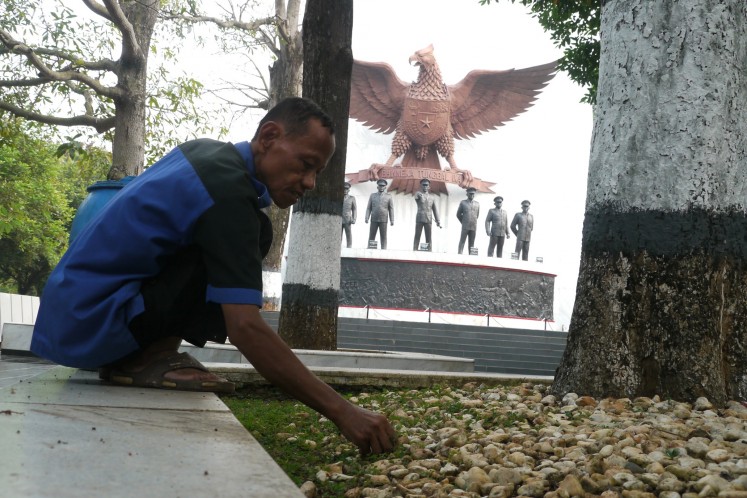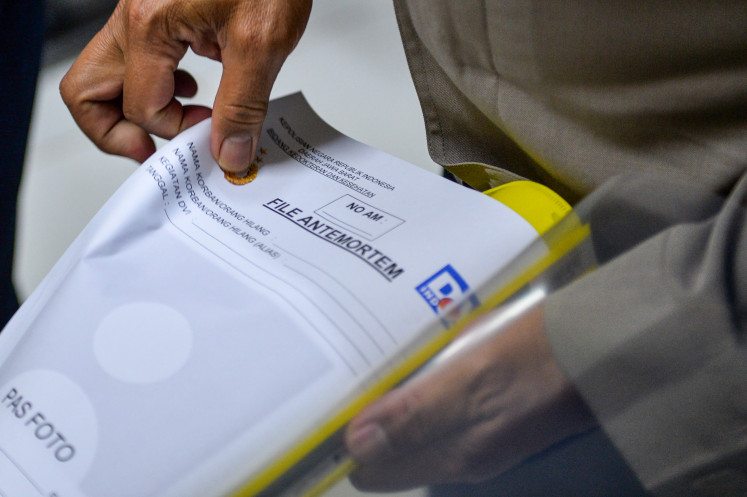Women spreading awareness of cervical cancer
Women supported by the Indonesian Cancer Foundation are pushing for more cervical cancer awareness campaigns
Change text size
Gift Premium Articles
to Anyone

Women supported by the Indonesian Cancer Foundation are pushing for more cervical cancer awareness campaigns.
Speaking at a campaign event Saturday, head of the foundation's education division, Sumaryati Arjoso, said that cervical cancer killed the most number of women in Indonesia and other developing nations than any other cancer.
Meanwhile, Laila Nuranna, head of the oncology gynecology division at the University of Indonesia's medical faculty, estimated that in Indonesia, there were 40 new cases of cervical cancer everyday, while 20 women died from cervical cancer daily.
"The largest cause of death in women results from childbirth and other complications related to birth and abortion, with more than 28 per day," she said.
Laila said globally that 700 women, or a woman every two minutes, died of cervical cancer everyday. About 80 percent of deaths related to cervical cancer occur in developing countries.
Sumaryati told the gathering that 99 percent of cervical cancer cases were caused by the Human Papillomavirus (HPV).
HPV can be contracted by anyone, including women and men of any age. HPV can also cause condiloma ocuminata, or genital warts.
The risks of HPV are related to sexual activity, frequency of births and smoking.
Data from the Indonesian Planned Parenthood Association (PKBI) shows that 62 percent of junior and senior high school students are sexually active.
"A HPV vaccination and early detection by a Pap smear test are the best prevention," Sumaryati said.
"A Pap Smear test is now affordable. A test at the cancer foundation only costs Rp 50,000 *US$4.83*."
"However, the HPV vaccine cannot cure cervical cancer or other HPV- related diseases. It can only prevent them."
Sumaryati said Pap smear tests could not detect uterus cancer or cancer in other reproductive organs.
"Precancerous cells in the cervix that are detected early can heal perfectly. And after the cervix heals, a HPV vaccine can be given directly," Sumaryati said.
The Indonesian Doctors Association (IDI) recommends the vaccine to be given not only to adults, but also to children, boys and girls, starting from 10 years old.
The WHO recommends the vaccine from age 6. (iwp)









